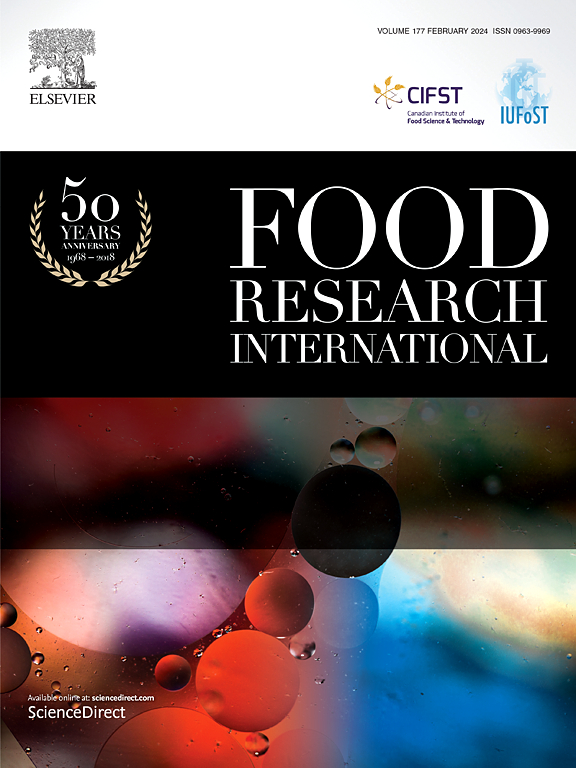大麦(Hordeum vulgare L.)营养成分和酚类化合物:干燥、储存和加工对其影响的综述
IF 7
1区 农林科学
Q1 FOOD SCIENCE & TECHNOLOGY
引用次数: 0
摘要
大麦是生产麦芽饮料的主要原料。然而,由于其成分和众多健康益处,它是一种重要的食物来源,正受到人们的关注。考虑到功能食品发展的新趋势,本研究采用文献计量分析方法,对大麦的干燥、储存和工业加工(对功能食品的发展至关重要)对其营养价值的影响进行了累积文献评估。大麦在储存过程中会失去营养价值;然而,低温储存和内源性酶(如脂肪酶、过氧化物酶和脂氧合酶)的失活,有助于延长大麦的保质期,保持重要的营养成分和整体质量。工业大麦加工方法对提高营养品质的功能性食品的开发具有很大的前景。然而,尽管大麦为基础的食品有望作为天然治疗剂,但需要临床研究来证实其在预防和减轻疾病方面的功效。本文章由计算机程序翻译,如有差异,请以英文原文为准。

Nutritional composition and phenolic compounds in barley (Hordeum vulgare L.): a review of the effects of drying, storage, and processing
Barley is the main raw material for the production of malted beverages. However, it is an important source of food that is gaining attention due to its composition and numerous health benefits. Considering the emerging trend in the development of functional foods, this study used bibliometric analysis to assess the cumulative literature on the impact of drying, storage, and industrial processing (which are crucial for the development of functional foods) on the nutritional value of barley. Barley can lose nutritional value during storage; however, low storage temperatures and the inactivation of endogenous enzymes, such as lipases, peroxidases, and lipoxygenases, help extend the shelf life of barley and preserve vital nutrients and overall quality. Industrial barley processing methods show great promise for the development of functional foods with improved nutritional qualities. Nevertheless, although barley-based foods hold promise as natural therapeutic agents, clinical studies are needed to confirm their efficacy in disease prevention and alleviation.
求助全文
通过发布文献求助,成功后即可免费获取论文全文。
去求助
来源期刊

Food Research International
工程技术-食品科技
CiteScore
12.50
自引率
7.40%
发文量
1183
审稿时长
79 days
期刊介绍:
Food Research International serves as a rapid dissemination platform for significant and impactful research in food science, technology, engineering, and nutrition. The journal focuses on publishing novel, high-quality, and high-impact review papers, original research papers, and letters to the editors across various disciplines in the science and technology of food. Additionally, it follows a policy of publishing special issues on topical and emergent subjects in food research or related areas. Selected, peer-reviewed papers from scientific meetings, workshops, and conferences on the science, technology, and engineering of foods are also featured in special issues.
 求助内容:
求助内容: 应助结果提醒方式:
应助结果提醒方式:


